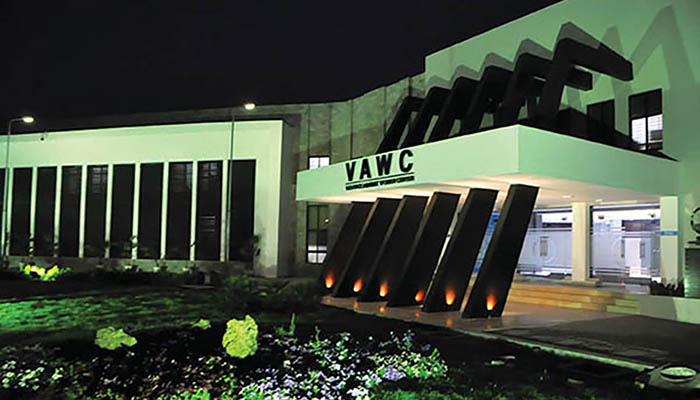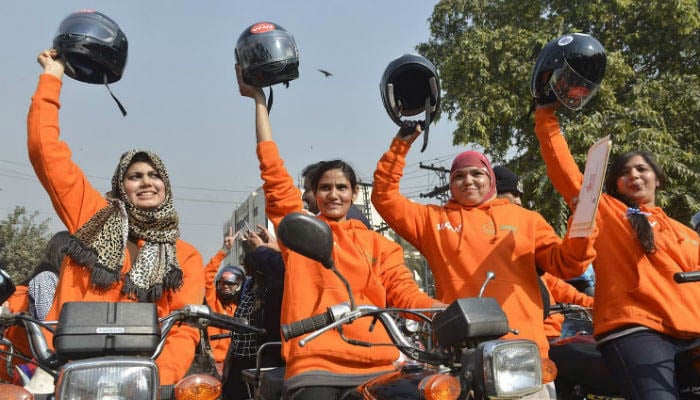Women’s rights: Stuck in reverse?
Two exceptional projects, the Violence against Women Center and Women on Wheels, need the government's attention, before its too late
March 08, 2019
It’s the most wonderful time of the year for women they say. The optics certainly live up to the hype. Events galore with flashlights all around. Words thundering from the microphone and women rekindling their somewhat lost optimism that the glass ceiling is just about broken.
Yet, far away from Neverland, when the policy makers return triumphant after delivering that remarkable speech, another world awaits. A world where speeches don’t matter much and political lobbying and sketchy internal coalitions decide what women of the country actually deserve, and that’s putting it mildly.
The reality is often in fierce competition with rhetoric when it comes to women rights in Pakistan, and the fate of reforms done for women empowerment are considered collateral damage during a political battle.
Take the case of the Violence against Women Center (VAWC) and the Women on Wheels for example. The former Punjab government of the Pakistan Muslim League-N (PML-N), steering away from the usual right-wing narrative it was associated with, embarked on an ambitious women empowerment agenda. Soon after, the Punjab Women Protection Act 2016 took the critics by surprise. No one expected the PML-N to take lead and introduce legislation that provides women with remedies that were absent from the criminal justice system.
To implement the legislation, a strong on-ground mechanism was introduced. The Violence against Women Centre (VAWC) for the first time in South Asia catered to the most basic needs of survivors of violence. The Centre housed police, prosecution, medico-legal, shelter services and rehabilitation under one roof, and was run by an all-women staff.
Women who never had the option to raise their voice against oppression and abuse suddenly felt emboldened to reclaim their rights.
In a short span, VAWC became the lifeline of over 2,900 women facing abuse in just one district. It was the tip of the iceberg. Plans were set in motion to open the centres in all 36 districts of Punjab. Simultaneously, Women on Wheels, a program to arm Punjab’s women with the power of mobility was launched. Over 4,000 women were trained on two-wheelers and subsequently, 700 of them were provided with subsidized two-wheelers. Mobility was seen as the key to economic participation for the women of Punjab and for the first time in Pakistan, the government was actively breaking stereotypes.
The aggressive push for systematic reforms was complimented with the creation of a women protection authority in Punjab which was tasked to oversee management of the VAWC, Women on Wheels and ensure its expansion.
But post the July ballot, the idea of a well thought out strategy for women empowerment has taken a back seat. The Centre and its employees are working without any funds for nine months, causing strain on their everyday livelihood and the services they are delegated to provide.
The Women on Wheels subsidy scheme has been put on hold despite funds available for two-wheelers procurement. The new government credits this delay to bureaucratic processes, which is a stark departure from reality. The political will remains the most effective tool to further any reform for women empowerment.
The Centre and projects like Women on Wheels facedan extensive backlash from within and outside the government. No bureaucratic process can hamper its extension or continuation if the political masters put their foot down.
VAWC and Women on Wheels are projects that serve as a reminder that women empowerment is not restricted to speeches when the will to act on it is present. The genre of political promises of women rights often climaxes at a mirage.
The voices within the government that have been working on women rights are supportive of the projects but must do more to bring the male lawmakers on board. This Women’s Day, it will be a defeat of our collective conscience if we ignore the plight of countless women fighting for their very lives and dignity. The VAWC provides them with the safety they deserve from the clutches of a barbaric mindset they are fleeing from. And WoW enables them to move forward, boldly, in a space designed to hold them back.
Pakistan must realise the aspirations of its female citizens. Slogans and mere speeches will no longer do.
Sufi is an international public policy and gender reforms specialist the former director general of the Punjab chief minister’s Strategic Reforms Unit













